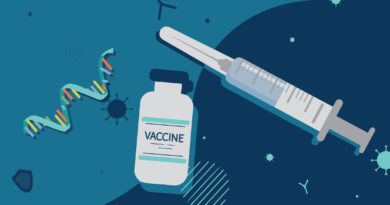COVID-19 vaccine sites stop checking IDs in an effort to increase numbers, much like voting

Laws and rules requiring Americans to prove who they are before they can gain access to certain buildings, buy certain products, visit government buildings or get on an airplane continue to confound and defy logic.
But now there is a new ID requirement: In order to get a COVID-19 vaccine in several states, you have to prove your identity.
Meanwhile, in many of those same states, you don’t need an ID to perform one of your most important civic duties: Voting.
Then again, in an increasing number of states, because coronavirus vaccines aren’t getting to the public fast enough, they’re ditching the ID requirement, too, to the detriment of citizens who are supposed to be at the front of the line.
Reuters reported Friday:
Many U.S. pharmacies, including those inside Kroger Co supermarkets and the drugstore chain of CVS Health Corp, say they will not be checking IDs before administering COVID-19 vaccines, leaving the door open to those who do not meet states’ guidelines to jump the line.
While the United States has distributed more than 30 million vaccine doses, a little over 11 million had been administered as of Thursday, a lag that prompted U.S. health secretary Alex Azar to call on states to begin vaccinating the vulnerable older population and those with certain chronic health conditions to get more vaccines into arms.
Vaccine stations are facing the choice of either following state eligibility mandates to the letter by requiring an ID check on-site, or fall back to an honor system where people could (and likely will) ignore guidelines so they can get more people inoculated more quickly.
“State and local guidelines vary across the 40 public health jurisdictions we serve, but in most cases, identification will not be required to receive the vaccine,” a spokeswoman from the Kroger grocery chain, the largest in the U.S., told Reuters. Thus far the retailer has administered more than 8,000 vaccines, most going to nursing home staffers and residents as well as healthcare workers.
At the same time, 22 states are utilizing age as the principle deciding factor as to who receives vaccines first. Four more are set to follow this week, while others are sticking to strict guidelines and mandates to make sure that the relatively few number of vaccines currently on hand are given to those deemed most in need.
“We are not planning to ask for ID to receive a COVID-19 vaccination,” said a spokeswoman for pharma chain CVS. “These vaccinations will be appointment-only in our stores and patients will have already gone through an eligibility screening when they register for an appointment on our website, through our app or via a 1-800 number.” (Related: You may want to rethink the jab.)
A spokesperson from Walgreens Boosts Alliance said the chain would follow state and local rules, while another from grocer Hy-Vee, which operates primarily in Midwestern states, said the company put a notice on its corporate website noting that IDs may or may not be sought prior to injections. “So far, we have had no problems,” said a spokeswoman.
“The more vaccines you have, the less you have to worry about prioritization,” Dr. William Schaffner, an infectious disease expert at Vanderbilt University’s School of Medicine. “We know it’s not going to be perfect, but who cares, we need to get them into arms.”
Which brings us full-circle back to the ID requirement in the first place: What’s the point? Yes, it’s a vaccine and vaccines aren’t the answer to every health pandemic, that’s one.
But also, if the goal is to ‘vaccinate as many as possible,’ shouldn’t shots be available on a first-come, first-served basis?
Or is this virus just not the big deal we’ve all be led to believe that it is?
See more reporting like this at Vaccines.news.
Sources include:
*** This article has been archived for your research. The original version from Natural News can be found here ***


